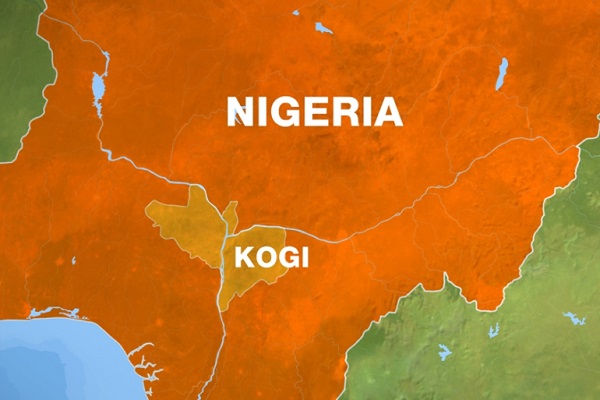Stakeholders have called for electoral reform that will reinforce elections as critical elements of democracy, and enhanced judicial integrity in post-election litigations.
This is contained in a Communique issued at the end of a seminar on Targeted Electoral Reforms and Enhanced Judicial Integrity in Post-Election Litigation organized by the Civil Society Legislative Advocacy Centre (CISLAC)
The Communique signed by
Auwal Ibrahim Musa (Rafsanjani)
Executive Director, CISLAC, made critical observations particularly that in recent times, Nigeria’s electoral integrity has been compromised, considering the fast-eroding independence and professional ethics by judicial institutions through Tribunal judgments.
Among other observations, it noted that
the Law Court has continued to play critical role in the determination of political leadership through post-election litigations, hence the need to refocus attention on the role of judiciary in electoral tribunal judgment.
According it , despite various legal reforms preceding the 2023 general and off-cycle elections, the conduct and outcomes of the elections have questioned the direction of Nigeria’s democracy.
It therefore recommended among others that there should be a refocus attention on the broader context of reform like public acceptability, political candidates’ integrity, good governance that reinforce elections as critical elements of democracy.
It stated,”We the participants recommended as follows: Electoral Reform; Refocus attention on the broader context of reform like public acceptability, political candidates’ integrity, good governance that reinforce elections as critical elements of democracy.
“Revisit the basis for the appointment of RECs through proper scrutiny to discourage intrusion of card carry members of political parties, to prevent conflict of interest in electoral process and outcomes.
“Encourage local procurement of electoral materials to prevent systemic bottlenecks and other challenges that bedevil logistics provisions during electoral conducts.
“Independent oversight of bureaucracy within the INEC to address over-centralisation of electoral logistics and structures.
“Enhance transparency and inclusion in the contest of Primary Elections to promote acceptable outcomes that mitigate pre- and post-election petitions.
“Encouraging state involvement in political party financing to promote transparency and accountability, while reducing the incidence of money politics and hijacking.”
According to the Communique the participants also recommended institutional reform which included; Strengthening internal reform process and procedures within the electoral institution for improvement to efficiently deliver on electoral integrity, while discouraging reported sabotage and process manipulation by electoral practioners.
“De-centralise procurement process for adequate provision of required logistics to facilitate smooth running of the electoral process and conduct that restore citizens’ confidence and participation.
“Strengthen the capacity of party managers and electoral agencies through deliberate and conscious training and retraining on effective electoral conduct and process.
“Revive the Office of the Special Adviser to the President on Inter-party Relations to maintain regular consultation and harmony between the ruling and opposition parties.
“Reactivate all electoral organs for effective implementation of electoral reform.
“Strengthen the INEC legal power to prove and declare credibility of electoral outcome to minimize judicial interference; and appoint RECs to preserve their operational integrity and standards in the conduct of elections.
“Training and retraining programmes to boost the technical and forensic capacity of INEC Staff on efficient conduct of digital elections.”
The Communique stated that the seminar recommended legal reform calling for the immediate amendments to Sections 41, 47 and 60 of the Electoral Act to provide adequate legal backing to whistle-blower and public interest litigations before, during and after the elections.
“Understand the limitations to reforming electoral legal processes and institutions to prevent deliberate neglect and summersault in the implementation process.
“Strengthen the capacity of electoral body to adequate deploy technology in electoral process through amendment to relevant provisions of the Electoral Act.
“Strict compliance by INEC and stakeholders to the implementation of relevant provisions of the Electoral Act.
“Immediate regulation of political funding by the National Assembly through appropriate amendment to the relevant provisions of the Electoral Act, to criminalize non-compliance in political party funding,” it stated.
On the call for judiciary reform, the Communique called on the government to re-examine selective judicialization of party supremacy giving cognisance to appropriate reform approach and procedures.
“Harmonise various judicial rulings on electoral outcome across the country to boost advocacy position to exhaustively engage the National Assembly for immediate amendment of the Electoral Act.
“Adequate specialised training and retraining programmes for judges to ensure well-informed technical interpretations that preservers judicial integrity.
“Reduce the layers of Court involvement with clear power separation to handle pre- and post-election matters to reduce electoral litigations burden on the judiciary,” it stressed.
The Communique further called on the
Civil Society Organizations to continued support to the Civil Society to protect and defend democracy, rule of law and electoral governance in Nigeria.
“Sustained and strategic advocacy by Civil Society through massive social mobilisation for common demands in electoral reform, while ensuring that citizens’ expectations resonate with the demands.
“Massive public awareness and education to harvest citizens’ support for judicial reform through targeted engagements,” it stated.
The Communique added that there should be gender-inclusive reform in the electoral process for equal participation and level playing field in electoral conduct and process.
It also called for the full implementation of gender-quota in party constitutions to promote equal participation of women in political leadership.
The Seminar brought under one-roof, Legal Practioners, Electoral Experts, Electoral Observers, Civil Society and the Media, that critically observed the areas enabling technicalities and challenges bedeviling the electoral system and conduct in Nigeria.




